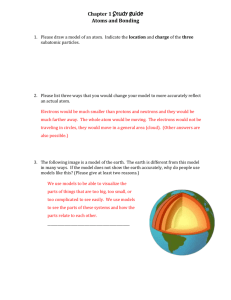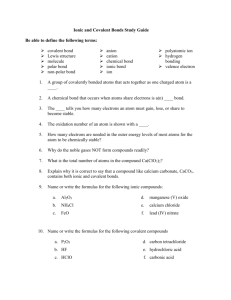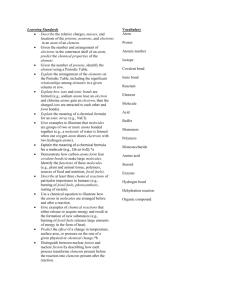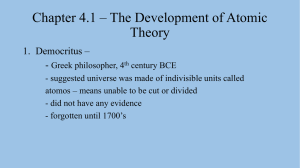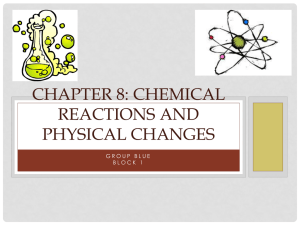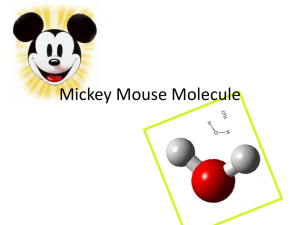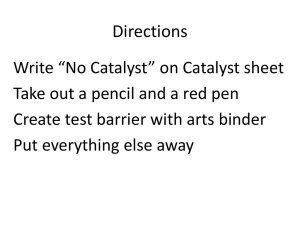Earth Science Guided Questions Unit 1
advertisement
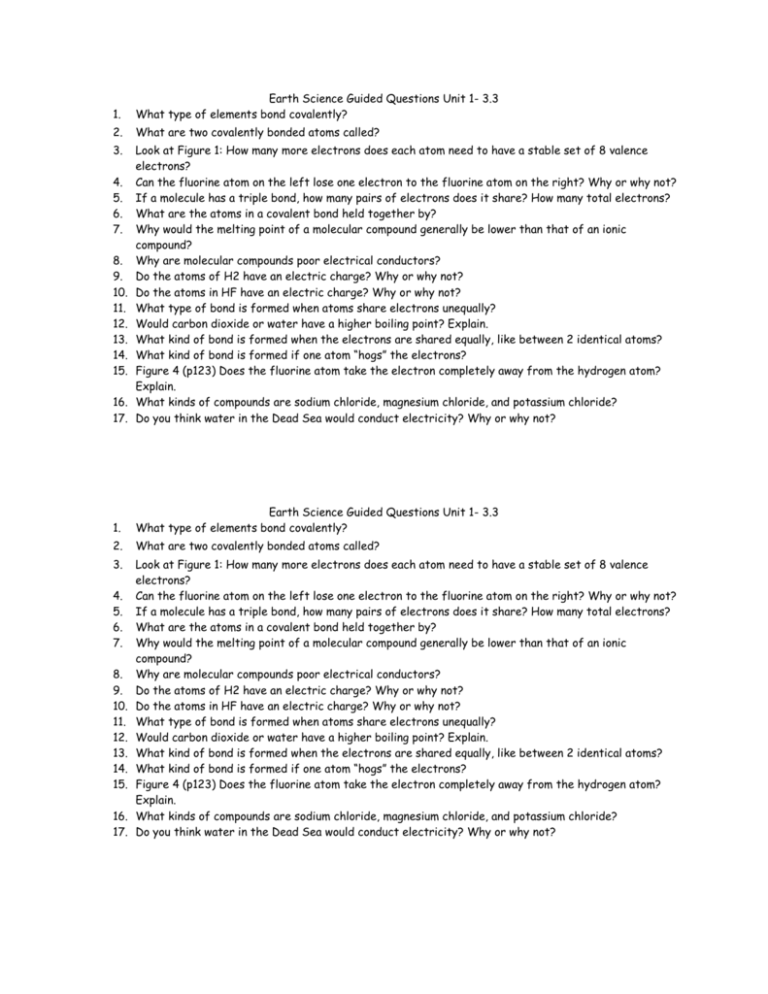
1. Earth Science Guided Questions Unit 1- 3.3 What type of elements bond covalently? 2. What are two covalently bonded atoms called? 3. 16. 17. Look at Figure 1: How many more electrons does each atom need to have a stable set of 8 valence electrons? Can the fluorine atom on the left lose one electron to the fluorine atom on the right? Why or why not? If a molecule has a triple bond, how many pairs of electrons does it share? How many total electrons? What are the atoms in a covalent bond held together by? Why would the melting point of a molecular compound generally be lower than that of an ionic compound? Why are molecular compounds poor electrical conductors? Do the atoms of H2 have an electric charge? Why or why not? Do the atoms in HF have an electric charge? Why or why not? What type of bond is formed when atoms share electrons unequally? Would carbon dioxide or water have a higher boiling point? Explain. What kind of bond is formed when the electrons are shared equally, like between 2 identical atoms? What kind of bond is formed if one atom “hogs” the electrons? Figure 4 (p123) Does the fluorine atom take the electron completely away from the hydrogen atom? Explain. What kinds of compounds are sodium chloride, magnesium chloride, and potassium chloride? Do you think water in the Dead Sea would conduct electricity? Why or why not? 1. Earth Science Guided Questions Unit 1- 3.3 What type of elements bond covalently? 2. What are two covalently bonded atoms called? 3. Look at Figure 1: How many more electrons does each atom need to have a stable set of 8 valence electrons? Can the fluorine atom on the left lose one electron to the fluorine atom on the right? Why or why not? If a molecule has a triple bond, how many pairs of electrons does it share? How many total electrons? What are the atoms in a covalent bond held together by? Why would the melting point of a molecular compound generally be lower than that of an ionic compound? Why are molecular compounds poor electrical conductors? Do the atoms of H2 have an electric charge? Why or why not? Do the atoms in HF have an electric charge? Why or why not? What type of bond is formed when atoms share electrons unequally? Would carbon dioxide or water have a higher boiling point? Explain. What kind of bond is formed when the electrons are shared equally, like between 2 identical atoms? What kind of bond is formed if one atom “hogs” the electrons? Figure 4 (p123) Does the fluorine atom take the electron completely away from the hydrogen atom? Explain. What kinds of compounds are sodium chloride, magnesium chloride, and potassium chloride? Do you think water in the Dead Sea would conduct electricity? Why or why not? 4. 5. 6. 7. 8. 9. 10. 11. 12. 13. 14. 15. 4. 5. 6. 7. 8. 9. 10. 11. 12. 13. 14. 15. 16. 17.
